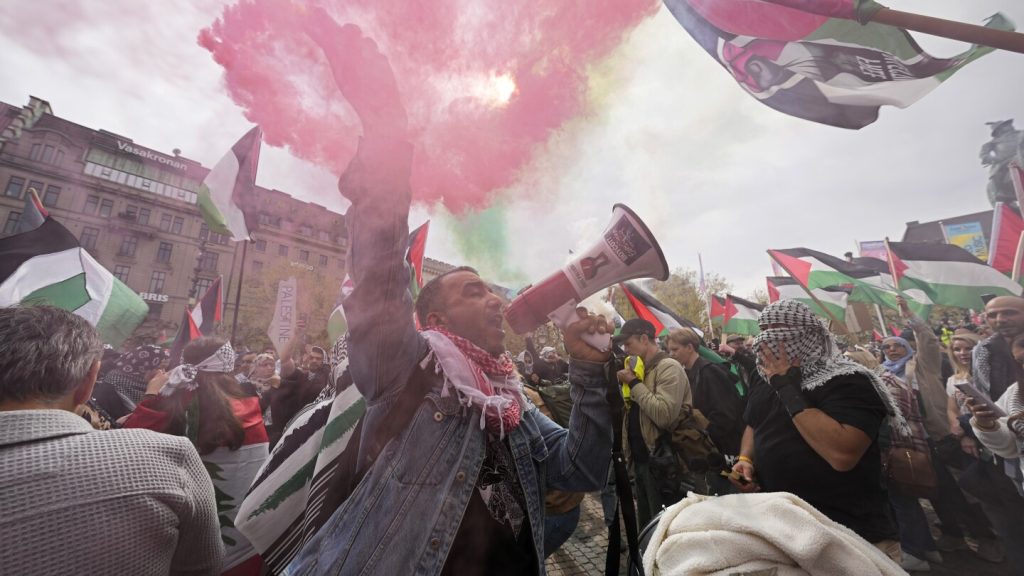Thousands of pro-Palestinian demonstrators gathered in Malmo, Sweden to protest against Israel’s participation in the Eurovision Song Contest. Chanting slogans and waving Palestinian flags, the protesters demanded a cease-fire and criticized Israel’s conduct in its conflict with Hamas. Among the protesters was Swedish climate activist Greta Thunberg, adding to the visibility of the demonstration. The large gathering reflected the growing tensions surrounding Israel’s involvement in the popular music competition.
The Israel-Hamas war, which has resulted in casualties on both sides, brought forth a juxtaposition during Eurovision week in Malmo. As music fans and Eurovision enthusiasts mingled in the city streets, supporters of the Palestinian cause made their voices heard through protests and rallies. Palestinian flags adorned buildings along the main thoroughfare, renamed “Eurovision street” for the occasion. The city also witnessed a smaller pro-Israel demonstration, highlighting the polarizing sentiments surrounding Israel’s participation in the event.
Despite calls to exclude Israel from the competition, Eurovision organizers maintained their stance of keeping the event non-political. They allowed Israel to participate but asked for changes to the lyrics of the entry to avoid controversy. Israeli singer Eden Golan faced mixed reactions from the audience, with some booing her performance during a dress rehearsal. However, Golan managed to secure a spot in the final competition through viewer votes, further intensifying the debate about whether Israel should have been allowed to compete.
Critics of the decision to allow Israel’s participation compared it to past instances where countries were excluded due to political reasons. Russia and Belarus were both disqualified from Eurovision in previous years for their actions, raising questions about the consistency of the competition’s policies. The ongoing conflict between Israel and Hamas has triggered protests and calls for boycotts, highlighting the deep-rooted divisions within the Eurovision community. The controversy has underscored the challenges of maintaining a purely musical event in the face of political tensions.
Pro-Palestinian groups planned further demonstrations on the day of the Eurovision final, indicating the persistence of the political discourse surrounding the event. Israel’s government issued warnings to its citizens about potential security risks in Malmo during the contest, reflecting the heightened tensions in the city. The clash of political ideologies and cultural celebrations in Malmo showcased the complexities of hosting a global event amidst conflicting interests. The significance of Eurovision as a platform for cultural exchange was overshadowed by the prevailing geopolitical issues at play.
Historical precedent shows that Eurovision has often been embroiled in political controversies, reflecting the broader societal divisions in Europe. From past boycotts to disqualifications based on political grounds, the competition has been a battleground for conflicting ideologies. As Europe navigates the complexities of the war in Gaza and the broader implications of the Israel-Hamas conflict, Eurovision emerges as a microcosm of the region’s political landscape. The protests in Malmo underscore the challenges of balancing cultural unity with political dissent, highlighting the ongoing struggle for solidarity and inclusivity in a divided world.


